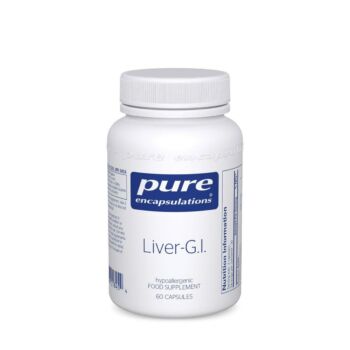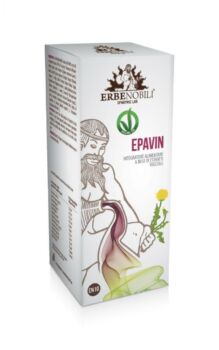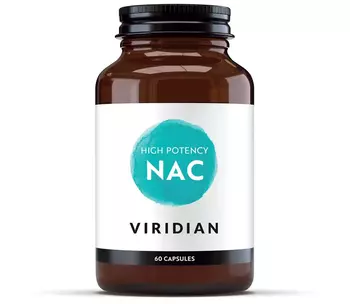We hope that all of our customers had a wonderful time with loved ones over the festive season. Following the excesses the festivities, January can be a time where most of us want to find a little balance again in our lives and spend some time recharging our batteries, feeding our bodies with nourishing foods and taking time out to set positive intentions for how we would like our 2023 to look.
We believe that these changes should start small by using achievable positive additions to our routines to nourish the body, mind and soul. The intention is that these positive changes become a normal part of our lifestyle that easily continue throughout the new year and beyond with a positive impact on our health and wellbeing. We wanted to give you some ideas for some small changes that might have a big impact on your health.
From our team of Nutritional Therapists to you... wishing you the best of health for 2023. x
****************************************
Self-care is popular term at the moment, and for good reason. As a society we are beginning to feel the effects of stress, illness, being over-burdened and needing to be available all the time. We live in a culture that shares photographs daily of ‘perfect’ lives, leaving the viewers to feel unfulfilled and dissatisfied with their apparent lack of progress in contrast. We need to start turning that outward approach inward, and instead of scrolling on our phones at other people’s lives, use that time to nourish and nurture ourselves and our own progress, at our own pace.
As well as the lifestyle factors that it takes to re-energise and recharge us, we can also use the foods we eat to fuel our body well and to help provide us with the right ingredients for our happiness hormones. January is usually seen as the time for restrictive diets which are a shift away from our norm such as ‘dry’ January or ‘Veganary’. We all know that we will feel better by reducing alcohol and sugar and eating more plant based foods. However, when we fall off the wagon with these plans, the tendency is to go back to our norm.
We want to encourage you to think about creating positive daily habits that continue long past January so here are some top tips from our Nutritional Therapy team of simple tricks to help you looks and feel great!
Start Your Day with some Vitamin C
An easy way to recharge and re-energise your body is by increasing your intake of vitamin C. The only place we store a tiny bit of this vital nutrient is in our adrenal glands hence our need for it during busy or stressful times. This is part of the reason why our immune defences can be weakened when we under chronic stress. As well as recharging our adrenal glands, vitamin C is also an important electron donor antioxidant and can help to scavenge any free radicals as part of our normal renewal processes. A critical building block for healthy collagen production in the body, another reason to incorporate this nutrient daily to support your radiance from within.
There are many ways to do this from simply starting your morning with the juice of half a lime or lemon in a glass of water, or later in the day is fine too. We personally love including a little grapefruit in the diet as a way to do this as this has additional super powers for cleansing the liver and supporting thyroid health too. Simply adding a handful of frozen berries to your morning porridge or a satsuma after lunch are also great ways to include more vitamin C. A portion of cruciferous veg daily will also do the trick so either broccoli, cauliflower or just keep going with those Brussels Sprouts whilst in season!
Of course, we're about foods first but supplements can also be helpful during times of chronic stress, when we are under the weather or simply if we need to bring the gap between our dietary intake or nutritional needs. Our two favourites are Extra-C by Viridian Nutrition and Liposomal vitamin C by Pure Encapsulations, please feel free to ask us for advice on the best supplement form for you. Want to read more about this amazing vitamin, then click here to visit our ingredients directory.
Basic yet often overlooked! If we want to nourish our body then we need to nourish what should be considered a critical organ within us... our microbiome. Our friendly bugs can give us the gift of good health if we look after them well. They are responsible for many functions such as manufacturing essential nutrients including B vitamins and vitamin K, nurturing our immune cells, converting amino acids into our happy and sleepy neurotransmitters and amongst many other functions, being the gatekeepers for optimal nutrient absorption. Getting to the roots of good health always starts with digestive health when it comes to how we work as Nutritional Therapists.
The food of our friendly bugs is fibre so to keep their populations healthy we need to eat lots of it in our diet for the most part. This is sometimes a little more complex with conditions such as IBD, IBS and SIBO where more consideration is required around fermentable carbohydrates. However, for most people diversity of the foods they eat and eating a rainbow is critical to nourish the bugs well.
We recommend trying to get at least 9 different vegetables and fruits in your diet daily (mostly veg) to ensure that you get both enough fibre and nutrients for optimal health. This can be from something as small as a clove of garlic or a topping of herbs to a palmful of broccoli or a portion of peas.
We also have the mighty fermented foods that not only provide fibre but also a wealth of gut friendly bacteria so a dessert spoon of sauerkraut daily is a great inclusion to your routine.
The old adage of an apple a day also goes a long way as the specific fibre that they contain is called pectin and is the perfect nourishment for digestive health. We love stewing them down at this time of year (no added sugar) as either the perfect pud or part of a warming breakfast with a sprinkle of blood sugar balancing cinnamon.
Starting the day with a dessert spoon of seeds is also a great inclusion and counts as a portion too as a great source of fibre. Different seeds have different benefits such as flax and chia are a great source of omega 3 (see below) and pumpkin seeds are a rich source of zinc.
Again its always foods first but pre and probiotics can be a useful measured way to support your digestive health if you feel that anything needs a little rebalancing there. With so many on the market, please do ask our advice on the best one for you from our prebiotic, probiotic, digestive health formula and enzyme ranges. We also offer full Functional Microbiome Analysis as part of our Nutritional Therapy services.
Most health conditions in the body start with inflammation. With the food we consume, as with the lifestyle we chose, much of it is either pro-inflammatory or anti-inflammatory. With the average Western diet being high in processed foods, high sugar, high saturated fat, high gluten, high meat and coupled with high stress, no wonder it is common to experience inflammation in the body in one shape or another.
Simply by shifting the balance and including more anti-inflammatory foods, we will naturally consume less pro-inflammatory foods. Simple ways to shift your balance are by making simple adjustments to your diet.
Firstly, think about reducing poor quality wheat in your diet. This is generally processed cakes, breads, biscuits and pasta. Simple swaps to an artisan sourdough, rye bread or just leaving out completely, such as swapping the morning toast out for porridge.
Secondly, rebalance your intake of fats to shift your ratio of omega 6 which is generally more pro-inflammatory to omega 3's which are generally more anti-inflammatory. Omega 6 fats generally come from animal fats and diary, whereas omega 3 fats are richer in fish and seeds such as flax seed. By switching out a couple of meals in the week from meat to fish or even choosing a couple of veggie options in the week, this will go a long way to help our balance. Vegan EPA/DHA and Flax oil can be useful to supplement with here for vegan diets to ensure ensure anti-inflammatory fats and fish oils for those who eat meat but don't like fish.
Next think about reducing sugars. This can be the ones we expect such as sweets, cakes and chocolates and also other foods that convert quickly in the body to sugar such as simple carbohydrates, processed fruit juices and alcohol. Swap out for other sweet foods such as using a little local honey if needed, fresh veggie juices, using berries to sweeten foods or recipes such as the stewed apples with a little cinnamon mentioned above to satisfy those sweet cravings.
Then we have the little things, small yet mighty in terms of potency. The powers of turmeric are well documented for their potency of activating anti-inflammatory pathways but don't underestimate ginger too. Ginger has has other benefits such as enhancing stomach acidity for optimal breaking down and digestion of nutrients. We also have (my personal favourite) the medicinal mushrooms, with mushrooms such as Reishi being well researched around its benefit to reduce inflammation. Antioxidant rich foods are notably important too when it comes to inflammation too with compounds such as ECGC from Matcha Green Tea being also small but mighty.
The more we can do to increase the anti-inflammatory and decrease the pro-inflammatory foods in our diets, the better for our health. Finding our balance is also about reducing our stress levels. Easier said than done, but we recommend that you take steps to implement self care in January... an Epsom salt bath, a walk in nature, reading a book or checking in with a loved one. These things don't have to be extreme, just small yet nurturing for your mind, body and soul.
Top Tips & Product Picks 1. Work towards 9 a day
We need to rethink our 5 a day message! In 2017, the World Health Organisation revisited this message with an analysis of the studies confirming that we need to look more towards double this amount for improved health and lack of illness. This includes both vegetables and fruits but an increased weighting towards vegetables is better. Think about the varieties of colours in the diet too, as these give us clues as to what the food is doing for our health… Yes, greens are great but cauliflower is also a rich source of compounds that support the health of the liver and hormonal balance. Don’t forget the little ones that all count and pack a nutritional punch too such as garlic which has amazing properties for our immunity and ginger that has super anti-inflammatory activity. Variety is the key here so keep a tally on how many different types of plant foods you consume in a day and work towards nine… By focusing on this positive inclusion of nutritious foods, it naturally reduces the nutrient poor choices we may otherwise make.
Top Tips & Product Picks 2. Apple cider vinegar with ‘The Mother’
This is essentially vinegar made from fermented apple juice. This super juice has received lots of attention due to its claimed health promoting properties such as blood sugar balancing, digestive support, weight loss, skin health and it also acts as an antimicrobial against pathogenic strains such as candida albicans, escherichia coli and staphylococcus aureus. It is also a rich source of malic acid which is great to support our energy levels and lots of people find it extremely helpful for any painful joint conditions.
Mix 1 dessert spoon in some cold or lukewarm water every day to reap the benefits. We recommend it either first thing in the morning or just as you are about to eat your biggest meal of the day.
Top Tips & Product Picks 3. Stewed apples
As we all know, good health starts in the gut. Stewed apples contain a flavonoid called Quercetin, which works with our immune system to reduce inflammation and protect against illness. Quercetin is also involved in maintaining and healing the gut integrity, a very important element of good digestive health. This anti-aging antioxidant had gained publicity recently with research around antiviral activity relating to severe acute respiratory conditions.
As well as quercetin, stewed apples also contain a lot of fiber, which assists with eliminating toxins from the body. This fibre also acts as a prebiotic, which our good gut bacteria love to guzzle up! Chop 6 normal apples (not cooking apples) into chunks and cook in a pan with 1 cup of water. Stew for 20 minutes or so then leave in the fridge. Have a small ramekin sized portion each morning with your breakfast (each batch usually lasts about 5 days).
Top Tips & Product Picks 4. Lemon and Ginger
This age-old drink has remained a popular choice by many over the years and that’s because it is so simple and so good! The vitamin C from the lemon and the antimicrobial effects of the ginger work together to give your immune system a real boost. It also helps to fuel the liver, kick-starting it to get the gastric juices flowing, which are essential for good digestion.
Keeping on top of vitamin C intake is also important for our stress response and adrenal health as we only store a little in our adrenals so we need a consistent supply to help keep calm and carry on. Adding a little to our daily routine can help reduce the stress response to stay focused and reduce any feelings of anxiety. Add a slice of lemon and a thumb sized piece of ginger (peeled) to a mug of hot water and sip away! Have this refreshing drink first thing in the morning to help awaken your senses.
Top Tips & Product Picks 5. Essential fats
Good fats are essential for our cellular health, not to mention our brain health which is made up of a huge proportion of fats. In the current climate, awareness of mental health is at the forefront of the media and at times of higher anxiety and emotionally challenging times, essential fats are so important to include in our diet. Fats have been previously given bad press but not all fats are equal. The good fats, especially the omega 3 type, fuel our bodies well to help balance our blood sugar, energising our body and supporting healthy weight loss. They also induce anti-inflammatory activity and keep our cells supple and flexible, providing visible external results with radiant healthy skin.
If you don’t think you get enough of the good guys in your diet, we recommend you start by taking a dessert spoon of cold pressed flax oil daily and see the results for yourself.
Top Tips & Product Picks 6. Liver foods
January tends to be a time where we want to detox and reduce the amount of toxins that we slowly increased in our diets in the build up to Christmas. Christmas is such a lovely festive season with lots of celebrate. However, celebrations tend to come with a few too many glasses of prosecco… (and mince pies!). January is a great time to re-set our system, reduce our toxic load and introduce some liver loving foods so we can support this exceptional organ to function at its best.
Fennel in the diet, barley grass powder added to your smoothie or simply taking dandelion tea are simple and effective ways of adding liver supportive foods into your diet. Also don’t underestimate the simple power of water and keeping nicely hydrated with 2 litres a day. For those of you who would like a little extra liver support this January, here is our top pick of liver supportive supplements that you can include:
- Organic Milk Thistle (or Silymarin) is a very popular liver support supplement. It has picked up a bit of a reputation as a ‘anti-hangover’ herb, due to it commonly being taken in the evening before consuming alcohol. The therapeutic benefits of milk thistle support the liver with phase 2 detoxification, helping to clear away toxins faster than usual!
- Epavin is a complex of multiple liver supporting herbs such as peppermint, dandelion, milk thistle, artichoke (and many more!) which work synergistically to help with draining toxins from the body and supporting our digestion too. Our liver really kicks in-to action in the nighttime, so it best to take this in the evening before bed for full benefit. You could see some improved sleep too!
- NAC (n-acetyl cysteine) is the precursor for glutathione, our master antioxidant. The more antioxidants we have, the better our bodies function, and glutathione protects the liver from damage. NAC also has other multiple benefits around lung function and also hormonal balance so this can be a useful addition for a variety of reasons.
Top Tips & Product Picks 7. Fresh air
Walks in nature are proven time and time again to restore our nervous systems by reducing the feeling of stress and anxiety. Even more, the bacteria from the soil can travel in the air and land in our digestive tracts, giving us some good gut bacteria without us even realising! Diversifying the different strains of bacteria in our digestive tracts is one of the best things we can do for our health and energy levels, so is reducing our stress levels. So, get started with a daily walk, even just 20 minutes, and get double the rewards!
The new year tends to trigger people to look into weight loss plans, they want to feel better and look better. We certainly don’t encourage dramatic weight loss too quickly as this tends to last a short period of time until the weight creeps back on again and also puts our liver under strain. However, with slow weight loss comes sustainable and long term change, better energy and a feeling of vitality. If you struggle with weight loss or simply would like a guided plan with specific daily suggestions for your health, then our Nutritional Therapy team are still offering consultations both in person at the clinic and also online or by phone. Contact us to discuss your health requirements and find out how Nutritional Therapy can support your future health and wellbeing.












